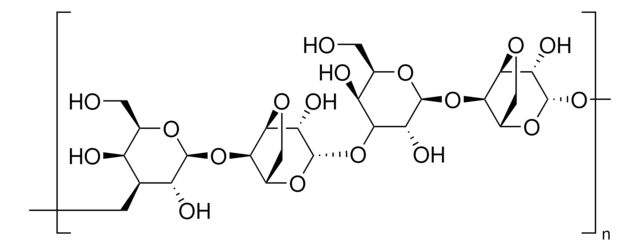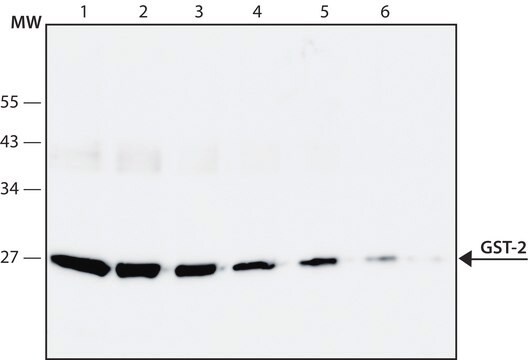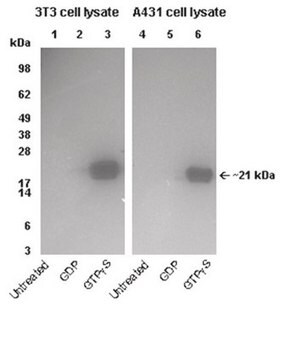G4510
Glutathione−Agarose
lyophilized powder
Synonym(s):
Glutathione-Agarose Resin, GSH-agarose, S-linked glutathione agarose
About This Item
Recommended Products
form
lyophilized powder
Quality Level
analyte chemical class(es)
proteins (GST)
extent of labeling
≥10 μmol per mL gel
technique(s)
immunoprecipitation (IP): suitable
protein purification: suitable
matrix
4% cross-linked beaded agarose
matrix activation
epoxy
matrix attachment
sulfur
matrix spacer
12 atoms (10 carbon)
storage temp.
−20°C
Looking for similar products? Visit Product Comparison Guide
General description
Application
- to purify glutathione S-transferase (GST)-fused protein for generating polyclonal antibody M4P
- to incubate supernatant fractions for the purification of full-length p53 (aa 1-393) and its DNA-binding domain (aa 94-288)
- in affinity purification of the fusion protein
Biochem/physiol Actions
Features and Benefits
- Offers rapid, mild, non-denaturing, and highly selective purification of glutathione-binding enzymes.
- Has a shelf life of two years if stored properly desiccated at -20 °C.
- Binding capacity: 5-10 mg glutathione S-transferase per mL resin
Quantity
Physical form
Storage Class Code
11 - Combustible Solids
WGK
WGK 3
Flash Point(F)
Not applicable
Flash Point(C)
Not applicable
Personal Protective Equipment
Regulatory Listings
Regulatory Listings are mainly provided for chemical products. Only limited information can be provided here for non-chemical products. No entry means none of the components are listed. It is the user’s obligation to ensure the safe and legal use of the product.
JAN Code
G4510-10ML:
G4510-VAR:
G4510-VAR-N:
G4510-5ML:
G4510-BULK-N:
G4510-1ML:
G4510-50ML:
G4510-BULK:
Choose from one of the most recent versions:
Already Own This Product?
Find documentation for the products that you have recently purchased in the Document Library.
Related Content
Pull-down assays, reagents, and protocols for investigating in vitro protein-protein interactions using affinity or GST pull-down, tandem affinity purification (TAP), and co-immunoprecipitation methods.
Our team of scientists has experience in all areas of research including Life Science, Material Science, Chemical Synthesis, Chromatography, Analytical and many others.
Contact Technical Service






